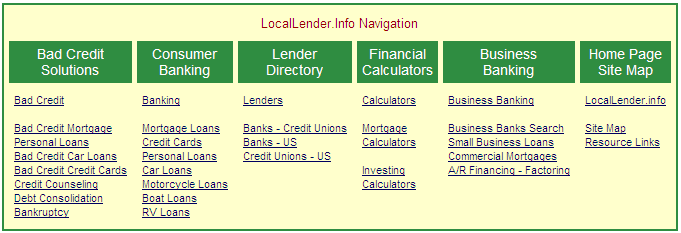Bankruptcy is one of the most effective forms of debt relief available - it allows people to get a fresh start by
forcing an individual's creditors to either forgive their debt partially/completely or accept delayed repayment terms.
Bankruptcy is frequently used by people who are overcome by financial hardship caused by the prolonged job loss, death of a spouse, divorce,
small business failure or unexpected medical expenses caused by prolonged illness/hospitilization.
Bankruptcy is a legal proceeding where you will be represented by a bankruptcy attorney.
The bankruptcy attorney will help you prepare your case for presentation in court.
For Individuals there are two types of bankruptcy:
- Chapter 13 Bankruptcy:
With a Chapter 13 Bankruptcy, you will present a plan to the court which outlines how you plan to repay your debt over
a 3-5 year period. The repayment plan will allow you to reduce your monthly debt payments to match your monthly income -
so you can start paying it off instead of going deeper into debt with mounting interest costs. Once submitted to the court, all of your creditors will review your plan to see if it acceptable.
If any creditor objects, you will have to modify your repayment plan to resolve the objection. Once all creditors have
accepted your repayment plan, you and the creditors will be legally bound to follow it.
One of the benefits of a Chapter 13 bankruptcy is that you are NOT required to sell assets such as your home or car.
If you have fallen behind in your house payments by several months, filing a Chapter 13 Bankruptcy may be
able to delay (at least temporarily) the lender from foreclosing on your home.
- Chapter 7 Bankrupcty:
With a Chapter 7 Bankruptcy, a trustee will collect all of your non-exempt assets which will be sold to cover your debt obligations.
As long as you do not have too much equity in your home, your home will not be affected and you will be allowed to keep it after the bankruptcy.
If the equity in your home is in the tens of thousands of dollars or more, the court will likely require your home be sold to help repay outstanding debts.
Proceeds from the sale of your assets will be used to pay off debts in a specific order. If the sale of the assets does not cover all of the outstanding debt,
most of the remaining debt will be completely erased - meaning you will no longer have to pay the outstanding balances.
Keep in mind that a Chapter 7 Bankruptcy will not get you out of paying any taxes, fines, student loans, alimony, child support or other
court ordered judgements you may owe. You would still be responsible for these items after the bankruptcy filing is complete.
The decision to file bankruptcy should not be taken lightly. A bankruptcy will remain on your credit history for up to 10 years,
which means you can expect to pay higher than average interest rates for the next several years after filing. However, if your financial situation is
such that you can not feasibly pay your bills, bankruptcy can be your financial savior.
Section Topics
